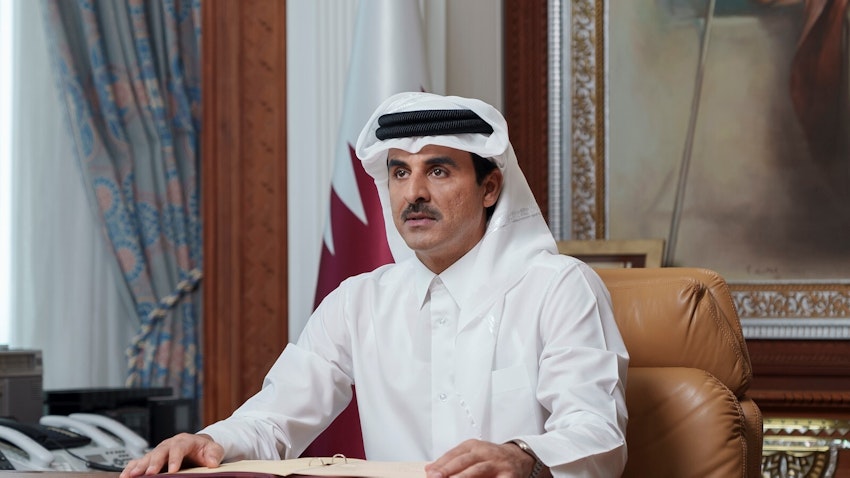Türkiye’s foreign minister held a press briefing in Doha on Sunday where he reiterated calls for an inclusive and peaceful transition in Syria.
Qatar has said that it is “closely monitoring the developments in Syria” following the fall of the Bashar Al-Assad regime on Sunday following his decades-long rule.
“The State of Qatar announces that it is closely monitoring the developments in Syria, and underscores the necessity of preserving national institutions and the unity of the state to prevent it from descending into chaos,” Doha’s foreign ministry said.
Rebel forces had launched a surprise offensive on Aleppo on November 27 that later led to the capture of other regime-controlled areas, driving out Al-Assad.
The Syrian dictator plunged his country into a bloody war when he cracked down on peaceful pro-democracy protests in 2011. At the time, Qatar severed ties with the Assad regime and maintained its staunch refusal to normalise with it despite last year’s wave of normalisation, which included his re-admittance to the Arab League.
In its statement on the fall of the regime, Qatar reiterated its support for a peaceful resolution in Syria “in a manner that serves the interests of the Syrian people”.
“The Ministry also calls upon all parties to engage in dialogue to safeguard the lives of the citizens, protect the national institutions of the state, and ensure a better future for the brotherly Syrian people and fulfill their aspirations for development, stability, and justice,” it added.
Doha meeting on Syria
Qatar had also hosted a meeting on Saturday evening on Syria that was attended by members of the Astana Process, including Türkiye, Iran and Russia. Arab countries were also represented at the meeting, including Jordan, Saudi Arabia, Egypt and Iraq.
In a joint statement, hours after the regime’s collapse, the participating countries underlined the need for “all parties to seek a political solution to the Syrian crisis”.
“They also agreed on the importance of strengthening joint international efforts to increase humanitarian aid to the Syrian people, and ensuring its sustainable and unhindered access to all affected areas,” the statement said.
The officials have also stressed the importance of continuing “close consultation” in order to find “a peaceful solution to the Syrian crisis”.
Meanwhile, Turkish Foreign Minister Hakan Fidan held a press briefing in Doha on Sunday where he reiterated calls for an inclusive transition in Syria.
Speaking to the press, Fidan outlined his country’s stance on the overnight developments in Syria, which he said were a result of decades of turmoil.
“This didn’t happen overnight, for the past 30 years the country has been in turmoil,” Fidan said. “The regime was relying on drug money to survive,” he added.
The senior Turkish official told the press that the regime had failed all attempts to reconcile with the Syrian people, while noting that the country is currently at a critical stage.
“As of this morning, Syria has reached a stage where the Syrian people will shape the future of their own country. Today, there is hope the Syrian people cannot achieve this alone,” Fidan said.
A pressing question at the briefing was over Assad’s whereabouts, with reports pointing to him fleeing to Russia, one of his main backers.
“I cannot comment on that. He’s somewhere, but I cannot comment on that. Probably outside of Syria,” Fidan said, adding that there has been no contact with Assad.







